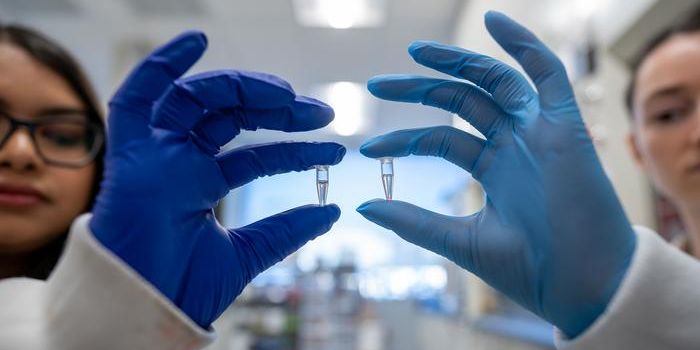Don't Sweat It! New Tech Monitors Health With a Single Drop of Sweat.
Looking for ways to cool off and beat the summer heat? Think twice before wiping that sweat off your brow. Every drop of perspiration is a treasure trove of biochemical information, containing a plethora of biomarkers capable of providing valuable insights into your health status.
Imagine if your watch strap was powered with technology to tap into these biological signals given off by sweat — continuously monitoring your health and wellbeing. Such a device might not be too far off from becoming a reality if scientists can find ways of overcoming the limitations in existing sweat-analyzing devices.
At present, sweat tests have a way to go before they can be used for routine, long-term monitoring. Some of the biggest challenges are that these are often expensive, inefficient, or are designed for one-time use. A recent study, published in the journal Biomicrofluidics, addresses these shortcomings and describes a breakthrough likely to make a big impact wearable diagnostic industry.
A team of biomolecular experts at North Carolina State University (NCSU), led by Orlin Velev, have created a low-powered gadget that uses paper to wick sweat off the user’s skin and and monitor their health for up to 10 days at a time. Unlike other paper-based devices that shut down once they become saturated with liquid, here, the engineers devised microfluidics that use capillary action to “pump” sweat through, allowing it to operate for extended periods.
Additionally, sweat traveling through the device’s evaporation pad leaves a signature pattern of salt deposits. Much like what tree rings can tell us about environmental fluctuations over time, these salt patterns create a traceable health history. The deposition of salt and trace metabolites such as lactate and cortisol can point to conditions ranging from sepsis, stress, and dehydration to hypertension. These can be “read” by doctors to provide a chronological health record.
According to Velev, this can also be useful in scenarios such as drug monitoring, where doctors need to chronicle medication intake and metabolism.
These developments are a means of unlocking the secrets held in our sweat and could potentially accelerate access to clinical interventions at the first signs of an imbalance. Sweat tests already exist for diseases such as cystic fibrosis, where patients usually have elevated levels of chloride in their sweat.
The integration of this novel sweat analyzer with other health technologies, including internet connectivity, artificial intelligence, and electronic sensing has the potential to be revolutionary.
"Our device will be a component of future devices that are kind of the Holy Grail in this area, where you have an electronic wearable that is going to detect your health status long term."
Sources: Inverse, Biomicrofluidics.









